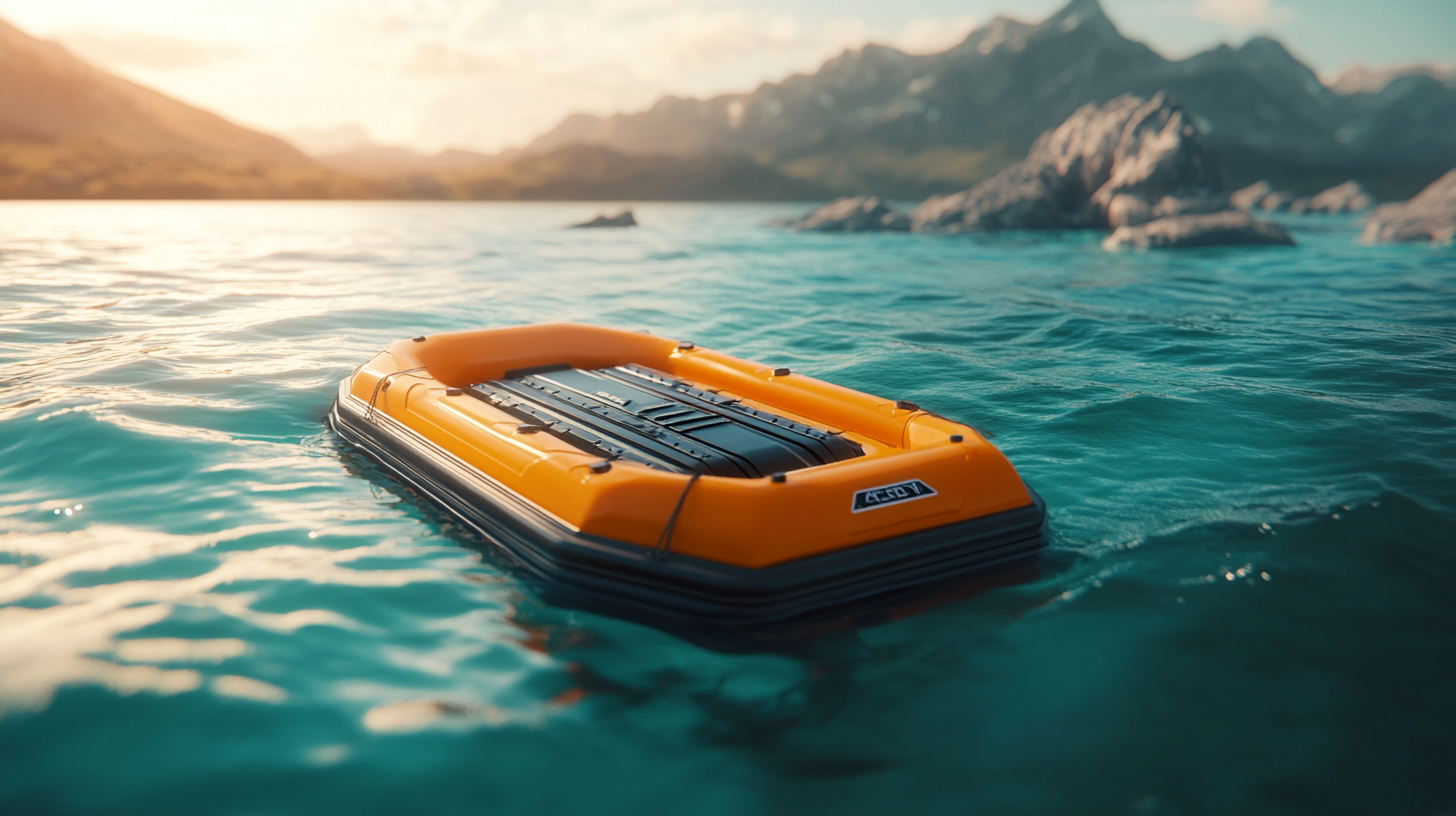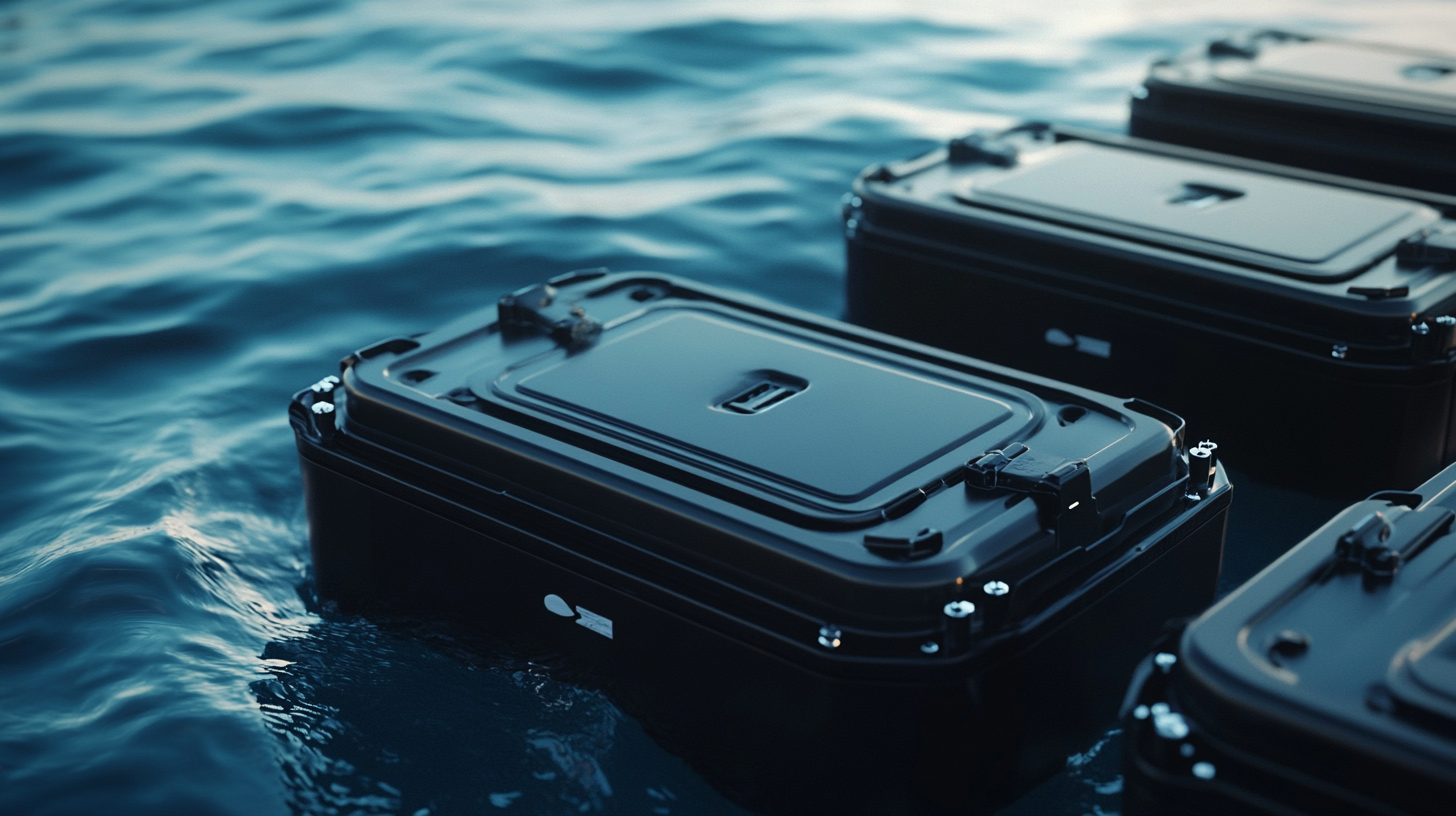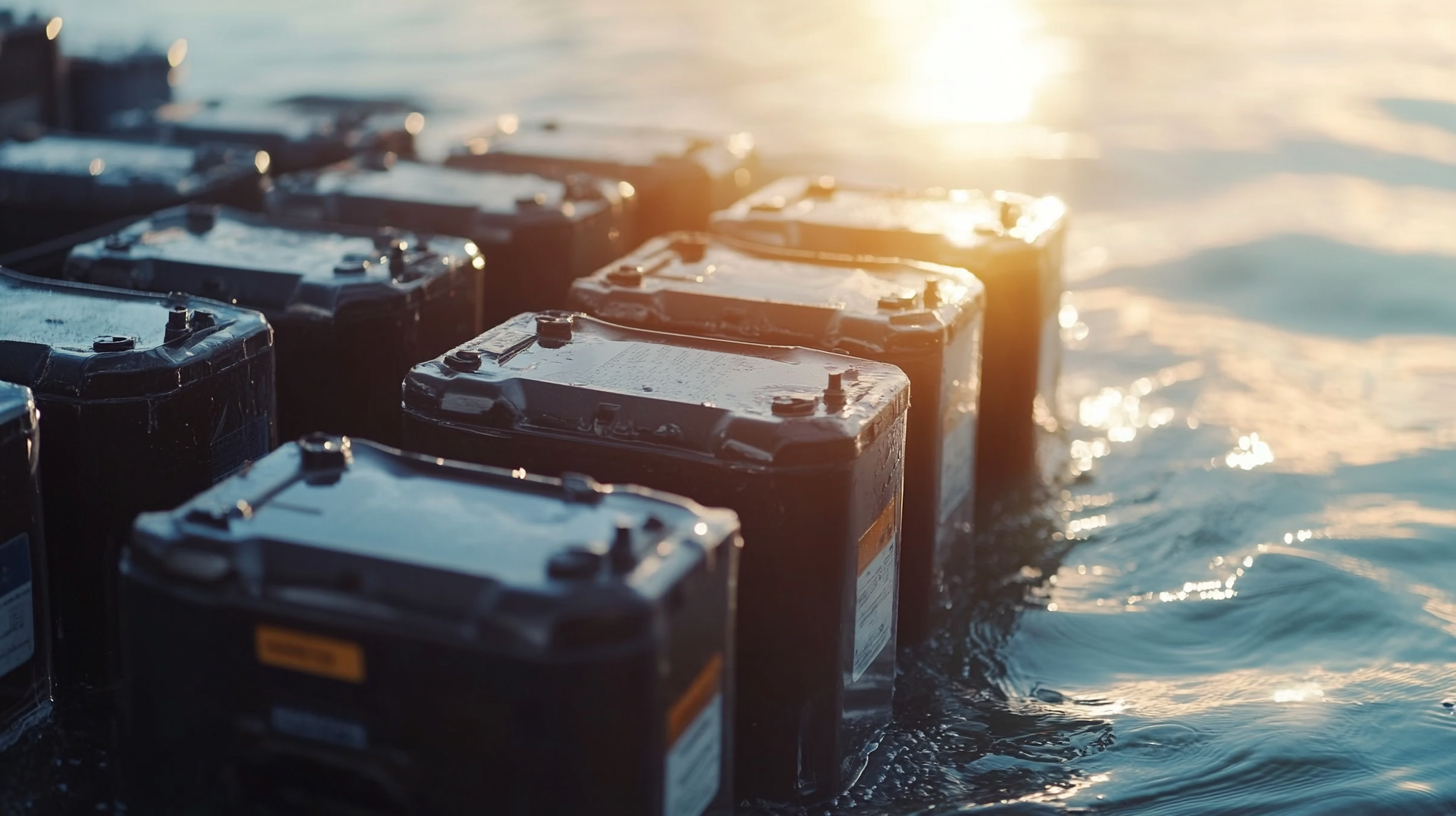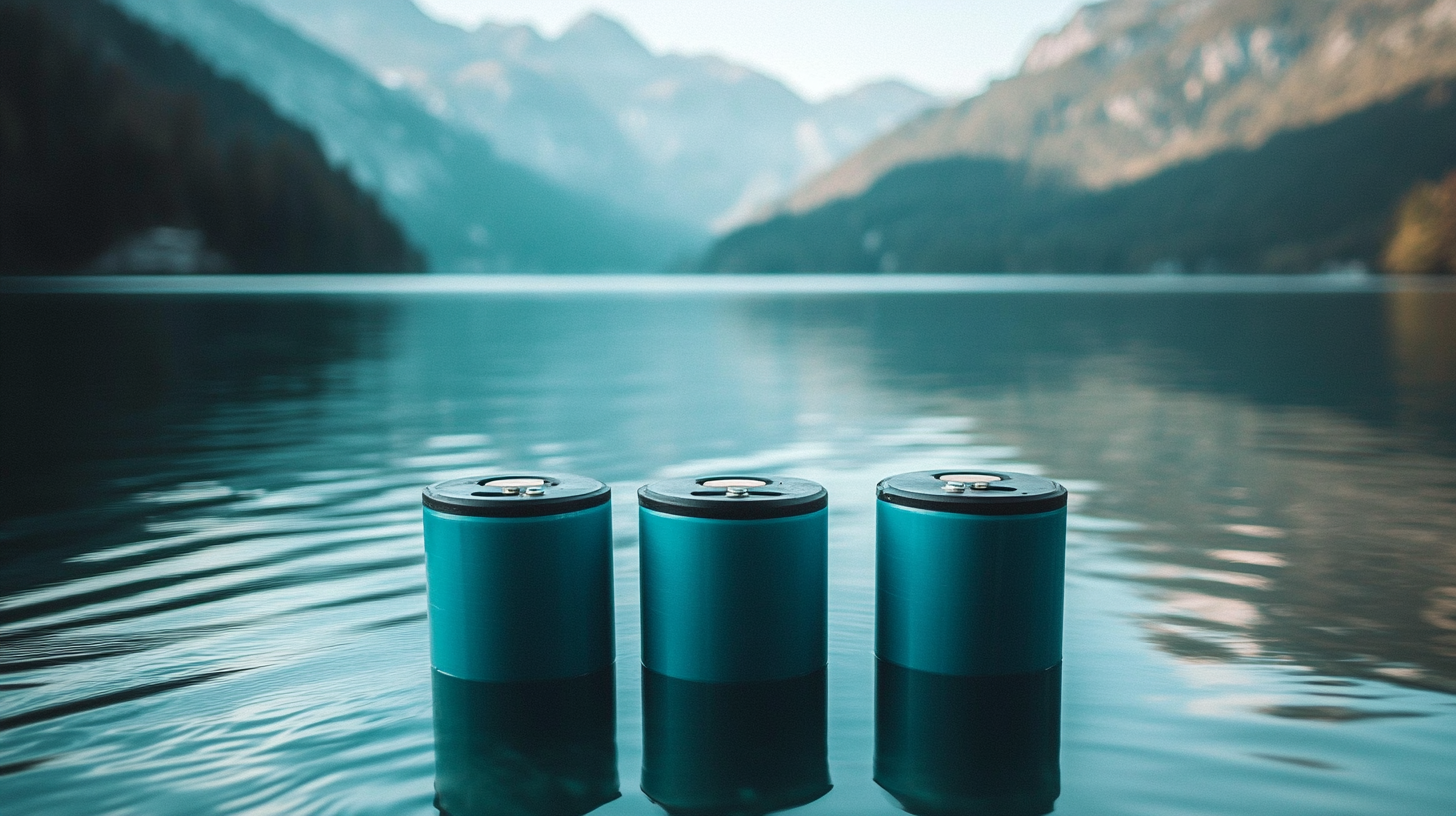Exploring the Best Boat Batteries on the Market for Your Maritime Needs
In the ever-evolving world of marine equipment, choosing the right boat batteries is crucial for ensuring optimal performance and reliability on the water. According to a recent report by MarketsandMarkets, the global marine battery market is projected to grow from $1.21 billion in 2021 to $1.78 billion by 2026, reflecting a compound annual growth rate (CAGR) of 8.3%. This growth is driven by the rising demand for recreational boating and advancements in battery technology, underscoring the importance of selecting the right battery for both leisure and professional maritime activities.
As boat technology continues to advance, so too does the sophistication of boat batteries. The modern boater now enjoys a variety of options ranging from traditional lead-acid batteries to cutting-edge lithium-ion solutions. A study published by the National Marine Manufacturers Association highlights that nearly 40% of boat owners consider battery longevity and performance as key factors in their purchasing decisions. Given these statistics, it becomes evident that understanding the landscape of boat batteries is essential for every maritime enthusiast. In this blog, we will explore the best boat batteries currently on the market, equipping you with the knowledge needed to make an informed choice for your maritime adventures.

Understanding Different Types of Boat Batteries: Lead-Acid vs. Lithium-Ion
When it comes to powering your boat, understanding the differences between lead-acid and lithium-ion batteries is crucial for your maritime needs. Lead-acid batteries have been the traditional choice for decades due to their affordability and reliability. They are available in various forms, such as flooded, AGM, and gel, making them versatile for different boating applications. However, one of the significant drawbacks is their weight and lower energy density, which can be a concern for performance-oriented boaters. On the other hand, lithium-ion batteries are gaining popularity for a multitude of reasons. They are significantly lighter, which can enhance your boat's performance and fuel efficiency. Moreover, lithium requires less maintenance and has a longer lifespan compared to lead-acid options. This emerging battery technology allows for real-time monitoring of performance and energy usage, making it easier for boaters to manage their power needs efficiently. Additionally, the growing market for lithium batteries has led to expanded options and improved affordability, making them a viable choice for the modern boater. When selecting the best type of battery for your boat, consider factors such as power requirements, size constraints, shelf life, and your budget. As the marine industry continues to evolve, the advantages of lithium batteries are becoming more prominent, suggesting a shift in how boaters approach energy storage solutions for their adventures on the water.

Key Factors in Choosing the Right Battery Capacity for Your Boat
When it comes to selecting the right battery for your boat, understanding battery capacity is crucial for ensuring optimal performance and reliability on the water. Battery capacity is typically measured in amp-hours (Ah), which indicates how much energy a battery can store and deliver over time. For boating purposes, it’s essential to assess your energy requirements based on your specific applications, such as running electronics, steering systems, and lighting.
One key factor to consider is the total power consumption of all devices on board. By calculating the combined amperage draw of your equipment and estimating the duration for which you will need to use them, you can determine the appropriate capacity needed. For instance, if your devices draw 10 amps and you intend to use them for 5 hours, you will need at least a 50Ah battery to support that usage. It's wise to factor in some extra capacity to accommodate unexpected needs or extend battery life, which often means opting for a slightly larger battery than your calculations suggest.
Additionally, consider the type of battery technology best suited for your boating style. Lead-acid batteries are traditionally favored for their cost-effectiveness, while lithium-ion batteries offer superior energy density and longevity, making them an increasingly popular choice. The charging capabilities and weight of the batteries also play a significant role, as lighter batteries can improve boat performance and fuel efficiency. With these factors in mind, choosing the right battery capacity not only enhances your boating experience but also ensures that you are equipped to tackle any adventure on the water.

Top Brands Leading the Boat Battery Market in 2023: A Professional Overview
In 2023, the boat battery market has witnessed significant advancements, with several brands rising to prominence due to their innovative technologies and reliable performance. A recent report by MarketsandMarkets indicates that the global marine battery market is projected to grow at a CAGR of 7.5%, reaching approximately $2 billion by 2026. This growth is largely driven by a surge in recreational boating and commercial marine activities, underscoring the importance of reliable power sources.
Leading the charge in boat batteries are brands such as Optima, Odyssey, and VMAXTANKS, which have consistently received high marks from industry experts. Optima, known for its SpiralCell technology, offers deep-cycle batteries that boast both longevity and exceptional starting power. According to Battery University, their batteries can provide up to 300 discharge cycles without significant degradation, making them a preferred choice for serious boaters.
Odyssey batteries utilize Absorbed Glass Mat (AGM) technology, which enhances safety and performance, and has repeatedly been cited for its high reserve capacity. A 2022 review by Boating Magazine noted that Odyssey's 31M-PC2150S is among the best for its power output and long life, empowering boaters to enjoy a seamless experience on the water.
Meanwhile, VMAXTANKS has made a name for itself with advanced lithium-ion batteries that offer lightweight designs and superior energy density. Their batteries are estimated to be three times lighter than traditional lead-acid counterparts, making them ideal for sport and fishing boats. A study from the National Marine Manufacturers Association reveals that smaller, more efficient battery solutions are becoming essential as boat designs evolve toward greater speed and agility.

Comparative Analysis of Battery Lifespan and Performance Under Marine Conditions
When it comes to equipping your boat with the best battery, understanding the intricacies of battery lifespan and performance under marine conditions is crucial. Marine environments can wreak havoc on battery life, making it vital to choose batteries that can withstand salty air, humidity, and varying temperatures. Recent advancements in technology, such as deep learning algorithms used for battery lifetime prediction, are transforming the way we assess battery performance in these challenging conditions.
These predictive models analyze diverse aging conditions and can accurately forecast battery degradation at an early stage. This insight is particularly beneficial for boat owners looking to extend the longevity of their energy storage solutions. By evaluating factors such as charge cycles and environmental stressors, these models aid in selecting batteries that not only meet immediate power needs but also offer a reliable lifespan throughout various maritime conditions.
Moreover, a comparative analysis of battery types—such as lead-acid, lithium-ion, and AGM (Absorbent Glass Mat)—highlights their individual performance under specific conditions encountered at sea. Lithium-ion batteries, for instance, typically outperform their lead-acid counterparts in terms of lifespan and energy density, but they have a higher initial cost. Understanding the trade-offs and leveraging modern prediction models can help boaters make informed decisions, ensuring their vessels remain powered and ready for every maritime adventure.
Cost vs. Value: Evaluating the ROI of Quality Boat Batteries for Long-Term Use
When it comes to sailing the open waters, selecting the right boat battery involves more than just picking a low-price option. The concept of cost versus value is paramount, particularly when evaluating the return on investment (ROI) of quality boat batteries for long-term use. High-quality batteries may come with a heftier price tag upfront, but they often provide enhanced reliability and longevity, ultimately saving you money in the long run.
Investing in a premium battery means fewer replacements and maintenance costs, as they are typically designed to withstand harsh marine conditions. For instance, advanced models often feature superior materials that resist corrosion and vibrations, which are common in marine environments. This durability translates to increased lifespan and less frequent upgrades, allowing boat owners to spend less time and money on replacements and greater peace of mind while out on the water.
Moreover, the efficiency of high-quality batteries can lead to better performance overall. A reliable battery ensures that all essential equipment operates smoothly, reducing the risk of breakdowns that could lead to costly repairs or safety hazards. By assessing not just the initial cost but the long-term value and ROI, boat owners can make informed decisions that align with their maritime needs and enhance their overall boating experience.

